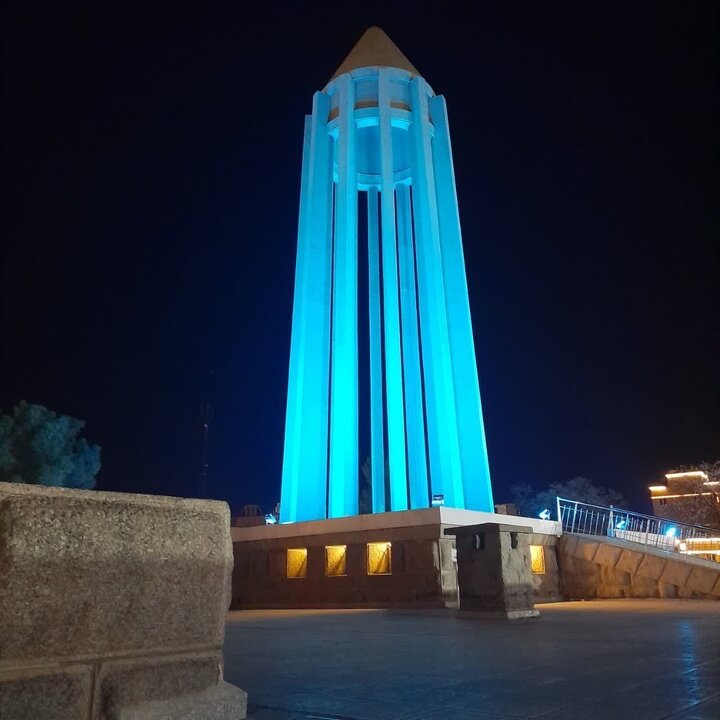Avicenna Mausoleum illuminated blue in support of autism awareness

TEHRAN - The iconic Mausoleum of Avicenna, nestled in the heart of Hamedan, has been aglow with a vibrant blue hue since April 2nd, which marks World Autism Awareness Day.
The illumination transformation is said to serves as a powerful symbol of solidarity and support for individuals living with autism spectrum disorder.
On Tuesday, Amirhossein Fariba, who presides over museum affairs at Hamedan province’s tourism department, explained that the decision to light up the architectural marvel in blue was a deliberate effort to raise awareness about autism and foster understanding among citizens.
“The Mausoleum of Avicenna has embraced the color blue, which internationally symbolizes autism, to shed light on the diverse spectrum of this condition,” Fariba stated.
Autism, a developmental disorder characterized by difficulties in social interaction and communication, manifests differently in each individual. “The signs of autism encompass a wide spectrum, and not all adults and children affected by autism display the same symptoms,” Fariba elaborated.
“Those living with autism often struggle with establishing emotional and social connections with others, and may perceive sensory information such as sounds and smells differently from their peers.”
Autism spectrum disorder (ASD) is a neurological and developmental disorder that affects how people interact with others, communicate, learn, and behave.
Ibn Sina (980 – 1037 CE), commonly known in the West as Avicenna, was the preeminent philosopher and physician of the Muslim world, flourishing during the Islamic Golden Age, serving in the courts of various Iranian rulers. He is often described as the father of early modern medicine. His philosophy was of the Muslim Peripatetic school, derived from Aristotelianism.
His most famous works are The Book of Healing, a philosophical and scientific encyclopedia, and The Canon of Medicine, a medical encyclopedia that became a standard medical text at many medieval universities and remained in use for centuries.
AM
